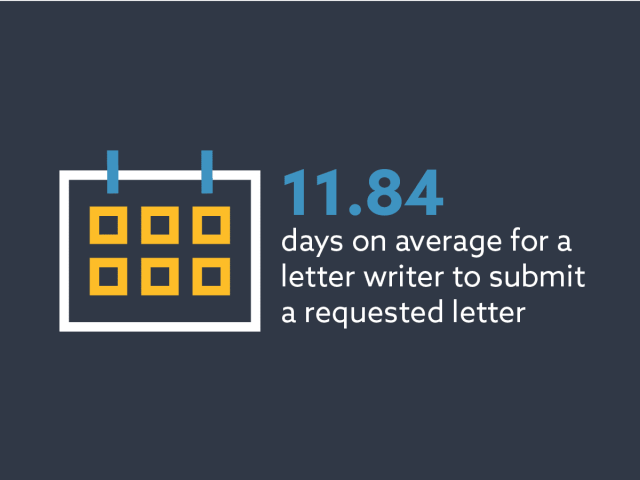This post continues our series, The Smart Scholar, on managing requests for letters of recommendation.
Happy end of the semester! While this time should be relaxing, I certainly know from experience how busy this time can be—especially with letters of recommendation coming due for various fellowships, graduate school applications, and faculty/staff/administrator positions. I can certainly imagine that many of you Smart Scholar series readers are getting inundated with requests for letters of recommendation. So, I want to provide two tips that I use that may help lighten your recommendation load.
Start and stay organized
One of the challenges I have faced when handling requests for letters of recommendation is knowing how to start and stay organized. I created a table (see below) with some suggested pieces of information to keep track of as you are writing the recommendation letter. Due date can often be the first item to come to mind, but I believe it is equally important to have information about the actual position or award that you are writing for. This is helpful to ensure you are writing the letter for the right audience.
Develop a recommendation letter template
As busy higher education professionals, we have many competing tasks. It’s important to have a recommendation letter template that you can start from in order to speed up the writing process. In particular, here are some prompts that I use to guide my letter writing:
- Paragraph 1: Provide salutation and connect the recommendee’s work with an aspect of the position/fellowship description.
- Paragraph 2-4: Explain my relationship to the applicant and go into detail about the impact of the applicant’s work.
- Paragraph 5: Explain that I am recommending this applicant without reservation, reiterate why the applicant is a fit for the position, and provide contact information.
Additionally, as I mentioned in an earlier post, I often ask anyone who needs a letter from me to create an initial draft that I can then build upon. I also ask them to provide me with any particular accomplishments or comments that should be a part of the letter. Again, having this information helps to speed up my ability to turn around a letter of recommendation.
Do you have other strategies for handling multiple requests for letters of recommendation? Please reach out to me on Twitter to continue the conversation!
Author Bio: Dr. Ramon B. Goings is an assistant professor of educational leadership at Loyola University Maryland. His research examines gifted/high-achieving Black male academic success PreK-PhD, diversifying the teacher and school leader workforce, and the student experience and contributions of historically Black colleges and universities to the higher education landscape. Dr. Goings is also the founder of The Done Dissertation Coaching Program which provides individual and group dissertation coaching for doctoral students. For more information about Dr. Goings’ research please visit his website www.ramongoings.com and follow him on Twitter (@ramongoings) and for more information about The Done Dissertation Coaching Program visit www.thedonedissertation.com.
Any opinions, findings, conclusions, or recommendations expressed in this material are those of the authors and do not necessarily reflect the view of Interfolio.

